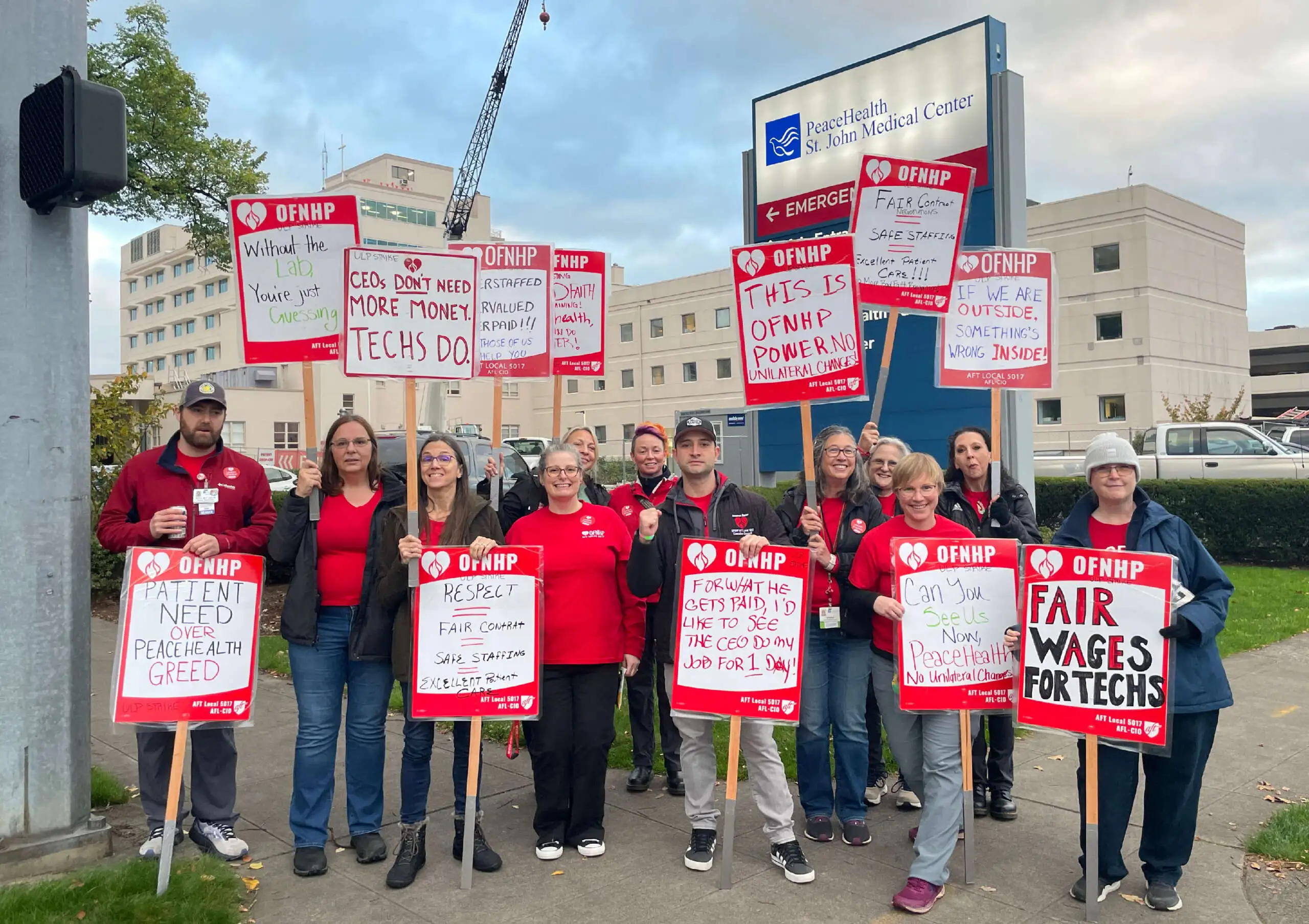Health care workers in the Pacific Northwest initiated a five-day strike over low pay and understaffing.
On Monday morning, over 1,300 unionized health care workers employed by PeaceHealth Southwest and PeaceHealth St. John in Washington State walked out of their workplace to commence a five-day unfair labor practice strike in protest of low wages, chronic understaffing and management’s canceling of bargaining sessions. They are represented by the Oregon Federation of Nurses and Health Professionals (OFNHP) and consist of workers in the tech, service and maintenance, and lab professional units.
After receiving notice of the workers’ decision to strike on October 13, PeaceHealth informed the union members that it would plan to cancel their health insurance plans, which lapse in November, if the strike were still ongoing at that time. This maneuver would have left many workers unable to afford essential health care for themselves and their dependents. As a result, the union decided on a five-day strike, rather than the initial open-ended strike. According to an OFNHP press release, PeaceHealth is offering at least $8,000 per week to strikebreaking traveling workers, which is more than double what the union workers make and far more than the wage increases they are seeking. A picket line of at least 1,000 strong wrapped around the PeaceHealth Southwest building in Vancouver, Washington.
PeaceHealth is a not-for-profit health care system that operates 10 hospitals and numerous clinics in the Pacific Northwest. In southwest Washington State, PeaceHealth is the only level II trauma center serving the community. PeaceHealth issued a statement addressing the strike on its website: “To date we have proposed highly competitive compensation packages that ensure our pay rates are market competitive … our communities can be assured that PeaceHealth has taken responsible steps to ensure we are able to deliver the same safe, high-quality care our patients and families have come to expect from us every day.” No mention is made on the website about staff-to-patient ratios.
And yet, workers at PeaceHealth express that their working conditions severely undermine their ability to care for patients. Some workers — especially those in maintenance, service and custodial positions — make less than $20 an hour. As Jonathan Baker, OFNHP president who also works as a medical lab scientist on a per diem basis put it in an interview with Truthout, “The workers are thinking, ‘do I have to choose between buying a medication or buying groceries? Do I have reliable transportation to even get to work?’ When you’re in the hospital do you want your health care worker worrying about these things? That worker is distracted. They’re walking around these floors concerned.”
archive link: https://archive.ph/13arb



It should be illegal to relatliate against striking workers.
It is, and this article is not accurate.
I do not agree with the following, I’m just explaining how things are.
This wouldn’t fall under retaliation. This is how employer attached health insurance works. If you were to enter an unpaid status at your employer, for any reason, and the health insurance premiums are not being paid, you will have a lapse in coverage until premiums resume. There are some situations where you would not experience a lapse in coverage but will incur a debt for the premiums. Either way, this can be avoided if you are able to cover the totality of the premium out of pocket, but that is an unlikely scenario for most.